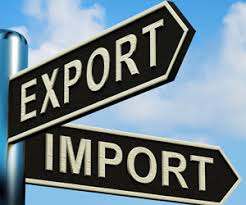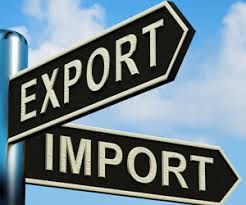
There is a soaring demand for the services of consultants offering services ranging from management to logistics even as companies from the U.S. and China seek out outside expertise to find out ways to handle the impact of the escalating trade war between the two largest economies of the world.
The two economies have been engaged in a tit-for-tat trade spat with import tariffs being slapped by each party over the goods of the other in a fight that has caused economies and experts to issue warnings of dire consequences for the global economy.
.
And it is a boon time for consultancies on international trade because companies associated with businesses that have been slapped with tariffs seek out ways to reduce the impact of the trade war on them.
Advices to companies about the countries that companies can look for alternative business and supply and suggestions on legal reclassification of their products to avoid tariffs is being given by the consultants, say firms like Deringer in the United States and ETCN in China.
“Our value has never been higher ... when I talk to people, they are desperate for the expertise,” Robert Stein, vice president of Mohawk Global Trade Advisors in the United States, told the media.
Since the first quarter of the current year, - the time when the trade war between the two countries started to escalate, the company which offers consultancy on international trade and with five offices in the US, has seen a 20 per cent increase in consulting activity, he added.
The consultancy firm Deringer ha noted an increased demand for its consulting services with specific demand for suggestions and advice in the so-called tariff engineering which deals with restructuring of the production process to allow companies to avoid the tariffs, said Amy Magnus, director of customs affairs and compliance of the company.
“A company might import components, partially assembled product, or change the final product in a way that changes the classification of the good to a new product - one that is not subject to the tariff,” said Magnus.
According to the website of Deringer, it is the biggest privately-owned customs broker in North America.
Cell phones, telecommunications equipment, toys and sporting equipment are among the goods that are imported into the U.S. from China and are the ones that will be most affected by tariffs. On the other hand, civil aircraft, plane engines, cars and soybeans are the industries from the US that would be most severely affected by Chinese tariffs.
At the same time, a 40 percent on-year increase in U.S. users of its website was noted by Chinese import and export consultancy ETCN during the first-half of 2018. The website of the firm details compliance and customs information. The company told the media that compared ot ayear before, the U.S.-registered members of the firm doubled in April.
“U.S. companies that have China based supply chains are exploring how they might incorporate other countries like Vietnam or Thailand into their network of vendors,” said Richard Morgan, chief executive of business advisory Equus Global Associates.
“People are confused. People are ... not panicking, but we are definitely seeing an increase in (tariff) enquiries,” said Igor Chigrin, co-founder of small Canadian import and export consultancy Win Global Partners.
(Source:www.reuters.com)
The two economies have been engaged in a tit-for-tat trade spat with import tariffs being slapped by each party over the goods of the other in a fight that has caused economies and experts to issue warnings of dire consequences for the global economy.
.
And it is a boon time for consultancies on international trade because companies associated with businesses that have been slapped with tariffs seek out ways to reduce the impact of the trade war on them.
Advices to companies about the countries that companies can look for alternative business and supply and suggestions on legal reclassification of their products to avoid tariffs is being given by the consultants, say firms like Deringer in the United States and ETCN in China.
“Our value has never been higher ... when I talk to people, they are desperate for the expertise,” Robert Stein, vice president of Mohawk Global Trade Advisors in the United States, told the media.
Since the first quarter of the current year, - the time when the trade war between the two countries started to escalate, the company which offers consultancy on international trade and with five offices in the US, has seen a 20 per cent increase in consulting activity, he added.
The consultancy firm Deringer ha noted an increased demand for its consulting services with specific demand for suggestions and advice in the so-called tariff engineering which deals with restructuring of the production process to allow companies to avoid the tariffs, said Amy Magnus, director of customs affairs and compliance of the company.
“A company might import components, partially assembled product, or change the final product in a way that changes the classification of the good to a new product - one that is not subject to the tariff,” said Magnus.
According to the website of Deringer, it is the biggest privately-owned customs broker in North America.
Cell phones, telecommunications equipment, toys and sporting equipment are among the goods that are imported into the U.S. from China and are the ones that will be most affected by tariffs. On the other hand, civil aircraft, plane engines, cars and soybeans are the industries from the US that would be most severely affected by Chinese tariffs.
At the same time, a 40 percent on-year increase in U.S. users of its website was noted by Chinese import and export consultancy ETCN during the first-half of 2018. The website of the firm details compliance and customs information. The company told the media that compared ot ayear before, the U.S.-registered members of the firm doubled in April.
“U.S. companies that have China based supply chains are exploring how they might incorporate other countries like Vietnam or Thailand into their network of vendors,” said Richard Morgan, chief executive of business advisory Equus Global Associates.
“People are confused. People are ... not panicking, but we are definitely seeing an increase in (tariff) enquiries,” said Igor Chigrin, co-founder of small Canadian import and export consultancy Win Global Partners.
(Source:www.reuters.com)





